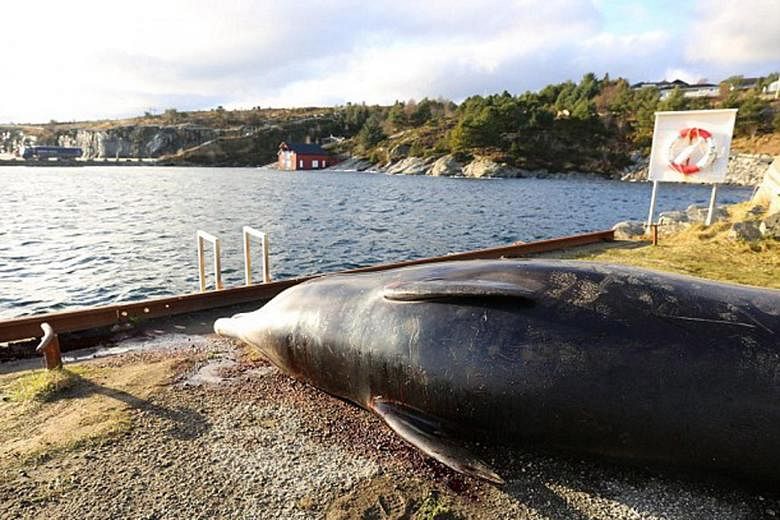BERGEN, Norway - A stranded whale in Norway had to be put down after ingesting more than 30 plastic bags and other plastic waste.
Scientists found the non-biodegradable waste inside the whale's stomach after the decision was made that the mammal was not going to survive and should be euthanised.
Despite the huge volume of plastic clogging up the whale's stomach, the fact it died from ingesting the waste was "not surprising", said researchers, as the volume of plastic in our seas continues to grow.
The goose-beaked whale was found stranded in shallow waters off the island of Sotra, 16km west of Bergen, and was in such poor health that wardens opted to put it down.
The creature had very little blubber and was emaciated, suggesting the plastic had resulted in the creature suffering from malnourishment, said Briatin's Telegraph.
Dr Terje Lislevand, a zoologist who studied the whale, said: "The whale's stomach was full of plastic bags and packaging with labels in Danish and English."
He also said the intestines were probably blocked up with plastic, causing severe pain.
He added: "The findings are not surprising, but clearly it is sad to discover such large quantities."
An orphaned baby manatee died at a zoo in Florida last month (January 2016) after ingesting plastic bags and debris - despite several weeks of work to bring it back to good health.
Goose-beaked beaked whales grow up to over 6m long and usually feed on squid and deep-sea fish.
They are not normally found in Norwegian waters, said the Telegraph.
At the beginning of last year (2016), experts warned there would be more plastic than sealife in the oceans by 2050.
At least eight million tonnes of plastic already ends up in the ocean every year - the equivalent of a rubbish truck of waste every minute, according to the report from the World Economic Forum.
The rate of plastic pollution is only expected to increase as more and more plastic is used globally, especially in emerging economies with weaker waste and recycling regimes.

